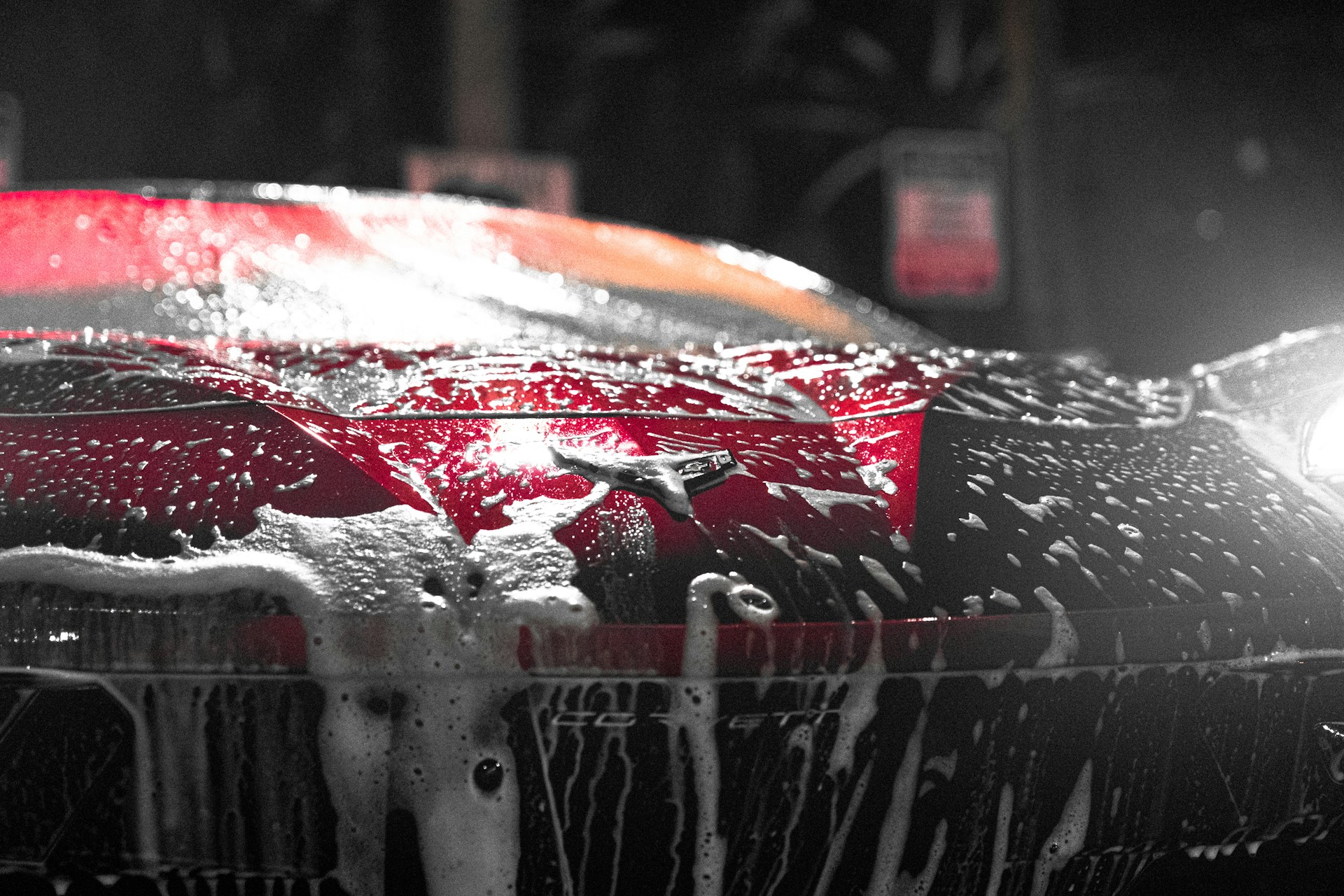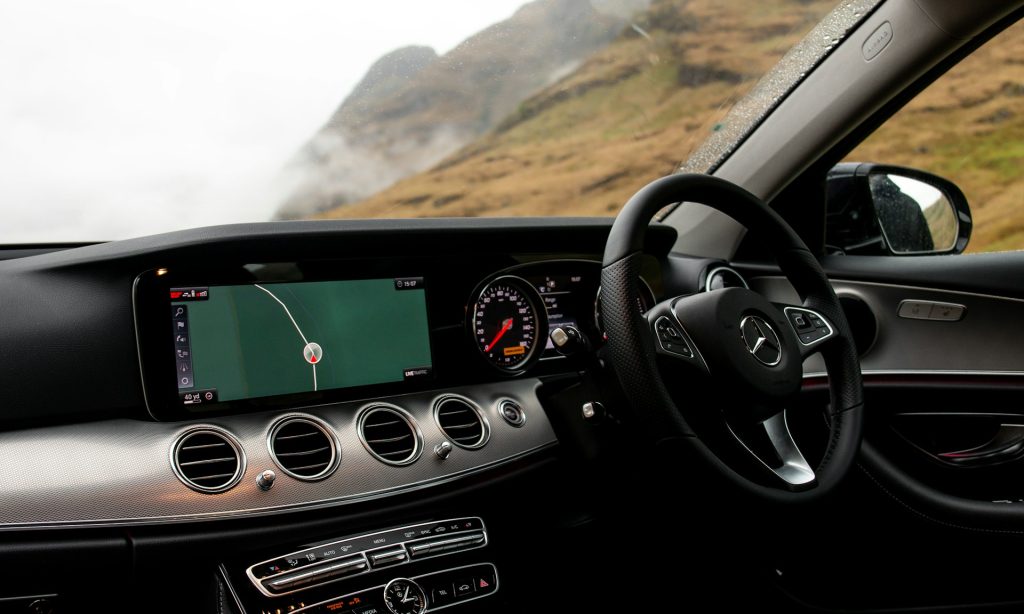
Yes, you can use dish soap to clean a car interior, but it’s not the best option. While dish soap can work in a pinch, it’s generally not recommended for cleaning delicate surfaces like upholstery or dashboards because it can be too harsh, strip away protective coatings, or leave residue behind.
When You Can Use Dish Soap to Clean a Car Interior
Dish soap can be effective when used on vinyl and plastic surfaces in your car interior. These include the dashboard, center console, and even vinyl seats. Since these materials are less sensitive compared to fabrics and leather, dish soap can clean them well without much risk. However, it’s important to dilute the soap with water. Using full-strength dish soap can lead to soap residue buildup, which may leave your surfaces feeling sticky or attract more dirt. A mild solution will prevent this issue while still breaking down grime and dirt.
For rubber or tough plastic car mats, dish soap is a perfectly fine option. These mats often collect dirt, mud, and grime, and dish soap can help loosen and remove it effectively. Rubber and plastic are durable and resistant to most cleaning products, making them an ideal surface for dish soap. Simply mix a small amount of dish soap with warm water, scrub the mats with a brush or cloth, and rinse them off thoroughly.
While dish soap isn’t the go-to choice for cleaning fabric upholstery in large areas, it can work for small spot-cleaning jobs. If you have a stain or light dirt on fabric seats, you can create a diluted solution of dish soap and water. Apply it gently to the stained area, but be sure to test the solution on an inconspicuous part of the upholstery first. Some fabrics may discolor when exposed to soap, so testing will help avoid any surprises. Spot cleaning is best suited for light messes, and you should always rinse the area well after cleaning to prevent soap buildup.
How to Use Dish Soap to Clean a Car Interior
Dilute the Soap: The key to using dish soap without damaging your car’s interior is dilution. A few drops of dish soap mixed with a gallon of warm water will create a gentle, safe solution for cleaning. This ensures that the soap isn’t too strong, preventing any potential damage to delicate surfaces. Diluting the soap will also make it easier to wipe away, leaving no residue behind.
Test First: Before applying your diluted soap solution to any surface, it’s always wise to test it on an inconspicuous spot. Whether it’s the upholstery, dashboard, or seats, testing helps you confirm that the cleaner won’t discolor or damage the material. If the soap mixture doesn’t affect the test spot after a few minutes, you can proceed with cleaning the rest of the surface with more confidence.
Use a Soft Cloth: To apply the soap mixture, use a microfiber cloth or a soft, clean rag. Microfiber is ideal because it won’t scratch surfaces, and it will also help trap dirt and debris as you clean. Dampen the cloth in the soapy water and gently scrub the areas you want to clean. Avoid using too much water, especially on porous surfaces like upholstery, as excessive moisture can lead to mold or water damage over time.
Rinse Well: After you’ve cleaned a surface, it’s important to remove any leftover soap residue. Soap that isn’t rinsed off properly can create a sticky surface that attracts more dirt, which defeats the purpose of cleaning. Use a clean, damp cloth (just water, no soap) to wipe down the surface again and remove any soap traces. This extra step ensures that the surfaces stay clean and don’t feel greasy.
Dry Thoroughly: Once you’ve cleaned and rinsed the surfaces, allow them to dry completely. Leaving moisture behind can cause water stains or encourage mold growth, especially in fabric upholstery. Drying the cleaned areas will also help avoid any unpleasant odors that may develop if moisture lingers.

Things to Be Cautious About
While dish soap can handle minor cleaning tasks on fabric upholstery, it’s important to exercise caution. Dish soap can be too harsh on some fabrics, and overuse may cause discoloration, staining, or leave sticky residues that are difficult to remove. Upholstery materials like suede or delicate fabrics should not be cleaned with dish soap, as they can be damaged. For larger stains or full upholstery cleaning, consider using a cleaner specifically formulated for fabrics.
Dish soap should never be used on leather surfaces. Leather is much more delicate and can be easily damaged by harsh chemicals like dish soap. It can dry out the leather, making it brittle and more prone to cracking or peeling. Leather also has a protective coating that dish soap can strip away. If you’re cleaning leather seats or trim, always use a cleaner and conditioner designed for leather. These products are formulated to clean without damaging the material or stripping away essential oils that keep leather supple.
While dish soap is effective for cleaning, it’s not designed for automotive interiors, and overuse can lead to problems. Using too much soap can cause residue buildup, making the interior feel greasy or sticky. It can also contribute to discoloration over time. Additionally, dish soap is designed for washing dishes, not for the various delicate materials found in cars, so it’s always better to use specialized products for longer-term care.
Better Alternatives for Cleaning Your Car Interior
For a safer and more effective approach to cleaning your car interior, consider using products specifically formulated for automotive use. Car interior cleaners are designed to clean without damaging sensitive surfaces like upholstery, dashboard trim, and carpets. These products come in various forms, including sprays, wipes, and foams, and are tailored for different surfaces, ensuring a thorough and gentle clean.
If you have fabric upholstery, it’s always best to use a dedicated upholstery cleaner or fabric shampoo. These cleaners are designed to break down dirt and stains without damaging the fibers or causing discoloration. Many upholstery cleaners also have built-in stain protectants that help keep your seats looking clean longer.
Leather seats and trim require special care to maintain their appearance and prevent damage. Leather cleaners and conditioners are formulated to clean without stripping away natural oils, and they help keep the leather soft and supple. Regular use of these products can help prevent cracking and fading, extending the life of your car’s leather interior.
Can I clean my car interior with dish soap?
Yes, you can clean your car interior with dish soap in certain situations, but it’s not always the best choice. Dish soap is effective for cleaning tough, non-delicate surfaces like vinyl, plastic, and rubber car mats. However, it should be used with caution. It’s important to dilute the dish soap with water to avoid leaving behind sticky residue. Dish soap is not recommended for fabric upholstery, leather, or delicate surfaces, as it can damage or discolor them over time. If you’re unsure, it’s always a good idea to test the solution on a small, inconspicuous area first.
What soap can I use to clean the inside of my car?
For cleaning the inside of your car, it’s best to use products designed specifically for automotive interiors. Here are some options:
- Car Interior Cleaner: These are versatile cleaning solutions designed to clean multiple surfaces, including dashboards, carpets, seats, and even leather. They are formulated to be safe for automotive materials.
- Upholstery Cleaner: If you have fabric seats or carpets, use an upholstery cleaner or carpet shampoo, as these are designed to break down stains and dirt without damaging the fabric.
- Leather Cleaner and Conditioner: For leather seats and trims, you should use a product specifically designed for leather care. These cleaners are formulated to clean and protect the leather without stripping away its natural oils.
- All-purpose Cleaner: If you don’t have access to a specific automotive cleaner, a gentle all-purpose cleaner can be used on plastic, vinyl, and rubber surfaces, but make sure it’s safe for use on automotive interiors and diluted appropriately.
Avoid using household cleaners that are too harsh or contain abrasive chemicals, as they can damage car surfaces.
Is soapy water good to clean car interior?
Soapy water can be effective for cleaning the car interior, but it depends on the type of soap you use and the surfaces you’re cleaning. A mild, diluted mixture of dish soap and water can work well for cleaning durable surfaces like vinyl, plastic, and rubber mats. However, it’s important to avoid using too much soap, as this can leave sticky residue or attract dirt.
For delicate surfaces, such as fabric upholstery and leather, you should use cleaners specifically formulated for those materials, as they are less likely to damage or discolor the fabric or leather. Always rinse the cleaned surfaces with a damp cloth afterward to remove any leftover soap residue.
What is a good substitute for car wash soap?
If you don’t have access to car wash soap, there are a few substitutes you can use in a pinch:
- Dish Soap: While not ideal for all surfaces, diluted dish soap can work as a substitute for car wash soap when cleaning your car’s exterior. Just be cautious when using it, as dish soap can strip away wax or protective coatings from the car’s paint.
- Baby Shampoo: If you need a gentle cleaner, baby shampoo is a mild alternative that can be used for washing the exterior of your car. Like dish soap, it should be diluted with water, and it’s generally safe for paint and clear coat.
- All-purpose Cleaner: A non-abrasive, all-purpose cleaner can be used for cleaning both the interior and exterior of the car. Just ensure that it’s safe for automotive paint and surfaces.
- Laundry Detergent: In a pinch, a small amount of laundry detergent mixed with water can serve as a substitute for car wash soap, but it’s not ideal for frequent use, as it can be too harsh on paint over time.
If you’re looking to preserve your car’s finish, it’s always best to use a dedicated car wash soap, as it’s formulated to be safe for your car’s paint and clear coat.
What areas of my car interior can I clean with dish soap?
Dish soap can be used to clean surfaces like the dashboard, center console, door panels, and vinyl seats. It’s also effective for cleaning rubber mats or tough plastic areas. Just make sure to dilute it with water to avoid any sticky buildup.
Is dish soap safe for fabric upholstery in my car?
Dish soap can be used for spot cleaning fabric upholstery, but it’s not ideal for cleaning larger areas. Dish soap may leave residue behind, or it could discolor the fabric if used improperly. Always test the soap solution on an inconspicuous area first to ensure it won’t damage the fabric.
Can I use dish soap on leather seats or trim?
No, you should avoid using dish soap on leather seats or trim. Dish soap can strip away the natural oils in the leather, causing it to dry out and crack. For leather, it’s best to use a cleaner and conditioner specifically designed for leather care.
How do I safely use dish soap to clean my car interior?
To safely clean your car interior with dish soap:
- Dilute a few drops of dish soap with a gallon of warm water.
- Test the solution on a small, inconspicuous area first to make sure it doesn’t cause damage or discoloration.
- Use a microfiber cloth or soft rag to gently scrub the surfaces.
- After cleaning, wipe down the surfaces with a clean, damp cloth to remove any soap residue.
- Let the surfaces dry completely to avoid moisture buildup.
Will dish soap leave a sticky residue on my car’s interior?
If you use too much dish soap or don’t dilute it properly, it can leave a sticky residue on your car’s interior. This is why it’s important to mix the soap with plenty of water and to wipe down the cleaned surfaces with a damp cloth afterward to remove any remaining soap.
Can dish soap be used to clean car mats?
Yes, dish soap can be used to clean rubber or plastic car mats. It’s effective at breaking down dirt and grime on these durable surfaces. Just mix a small amount of dish soap with warm water, scrub the mats with a brush or cloth, and rinse them thoroughly.
What are the risks of using dish soap to clean my car interior?
While dish soap is effective for cleaning certain surfaces, there are risks:
- It can be too harsh for delicate materials like leather or fabric, potentially leading to discoloration or damage.
- Overuse can leave behind soap residue that attracts dirt or makes surfaces feel sticky.
- Dish soap may strip away protective coatings on some surfaces, especially if used on paint or clear coat (though this typically concerns exterior surfaces).
What is a better alternative to dish soap for cleaning my car interior?
For the best results, use cleaning products specifically designed for automotive interiors. These include:
- Car interior cleaners for surfaces like plastic, vinyl, and upholstery.
- Upholstery cleaner for fabric seats and carpets.
- Leather cleaner and conditioner for leather seats and trim. These products are designed to clean effectively without damaging sensitive materials.
Can I use dish soap to clean my car’s windows or mirrors?
While dish soap can be used to clean glass surfaces in your car, it’s not the ideal choice for windows or mirrors. Dish soap may leave streaks or residue behind. Instead, opt for a glass cleaner specifically formulated for automotive use, as these will provide a streak-free shine.

